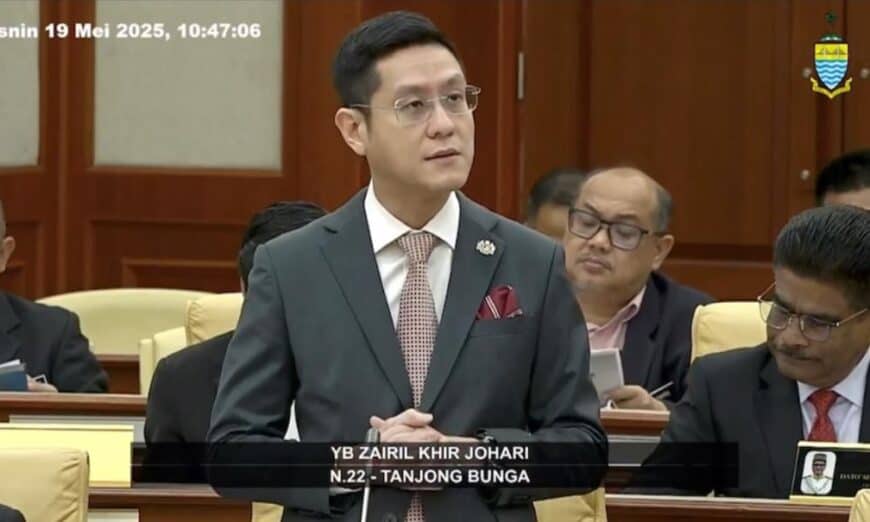PENANG is taking the issue of gas pipeline safety seriously, implementing stringent monitoring measures through various agencies to prevent a recurrence of incidents like the recent gas explosion in Putra Heights, Selangor.
State Infrastructure, Transport, and Digital Committee chairman Zairil Khir Johari (PH–Tanjong Bunga) made the remarks during the State Legislative Assembly sitting today in response to an oral question from Lee Khai Loon (PH–Machang Bubuk) regarding the safety of gas pipelines.
Zairil said the Department of Occupational Safety and Health (DOSH) conducts annual safety audits on gas pipeline operators to evaluate their management, maintenance, and operational practices.
These audits are carried out under two key legislations — the Occupational Safety and Health Act 1994 and the Petroleum (Safety Measures) Act 1984 — to ensure workplace safety and mitigate risks such as gas leaks or explosions.
According to Zairil, DOSH audited seven operators in 2022, increased the number to 14 in 2023, and further expanded the scope to 19 operators in 2024.
He added that the authorities also conduct surprise inspections on pipelines operating without a valid Pipeline Transportation Operation (PTO) licence. If any risks are detected, the operators are directed to make necessary repairs to mitigate hazards and ensure compliance.
Zairil said the state government also monitors gas pipeline safety through the state Disaster Management Committee, which operates based on policies and mechanisms set by the National Disaster Management Agency (Nadma). An emergency response plan has been established.
He added that the latest disaster-related information would be disseminated to the public through the media, social media platforms, and official government channels. If a disaster escalates beyond control and causes air pollution or other serious consequences, the state government has the authority to declare a state of emergency in the affected areas.
Zairil also revealed that Penang forms part of the main Peninsular Gas Utilisation (PGU) pipeline route, which is owned by Petroliam Nasional Berhad (Petronas) and operated by Petronas Gas Berhad (PGB), covering approximately 42 kilometres (km).
“The PGU main pipeline in Penang runs from south to north, passing through areas such as the Sungai Kerian border, Parit Buntar, Relau, Machang Bubuk, Mengkuang, Ara Kuda, Kampung Selamat, and Pinang Tunggal before crossing the Sungai Muda into Kedah,” he said.
In addition, a 23km lateral pipeline branches off to supply natural gas to the Prai Power Station, the Tenaga Nasional Berhad (TNB) Power Station in Perai, and eventually to the TNB Power Station in Gelugor.
In reply to a written question from Phee Syn Tze (PH–Sungai Puyu), Zairil said that applications for underground gas pipeline infrastructure are processed through two methods — land alienation or right-of-way approval.
Story by K.H. Ong
Pix by Nur Batrisya Idris

